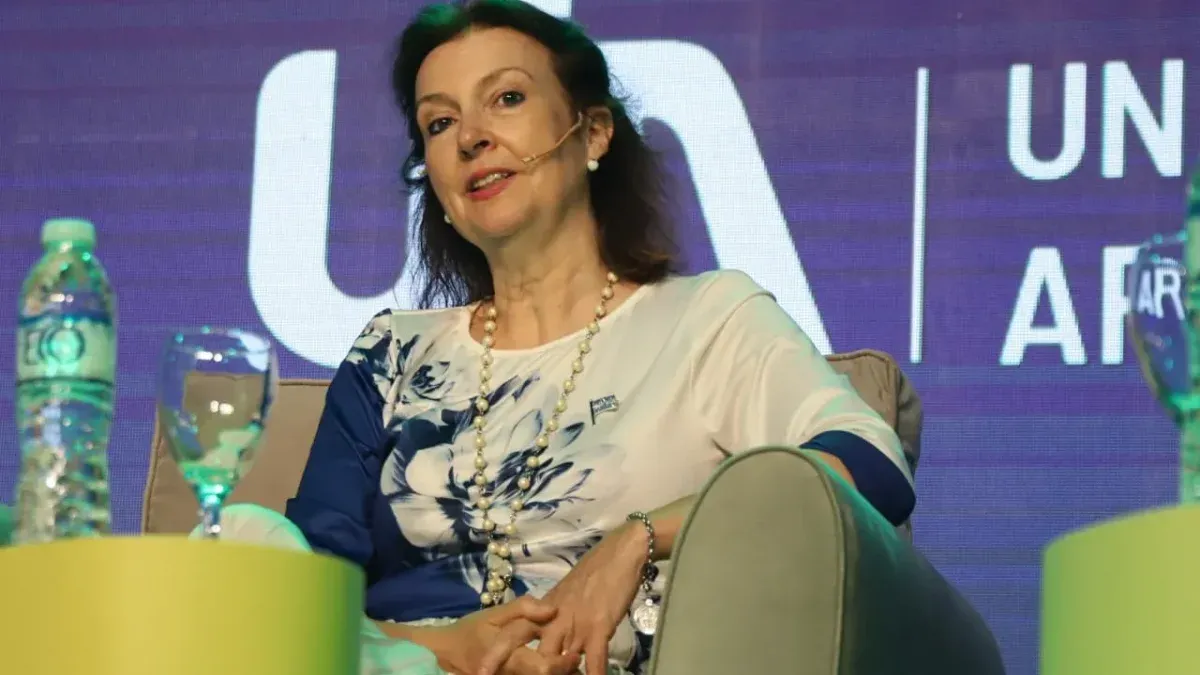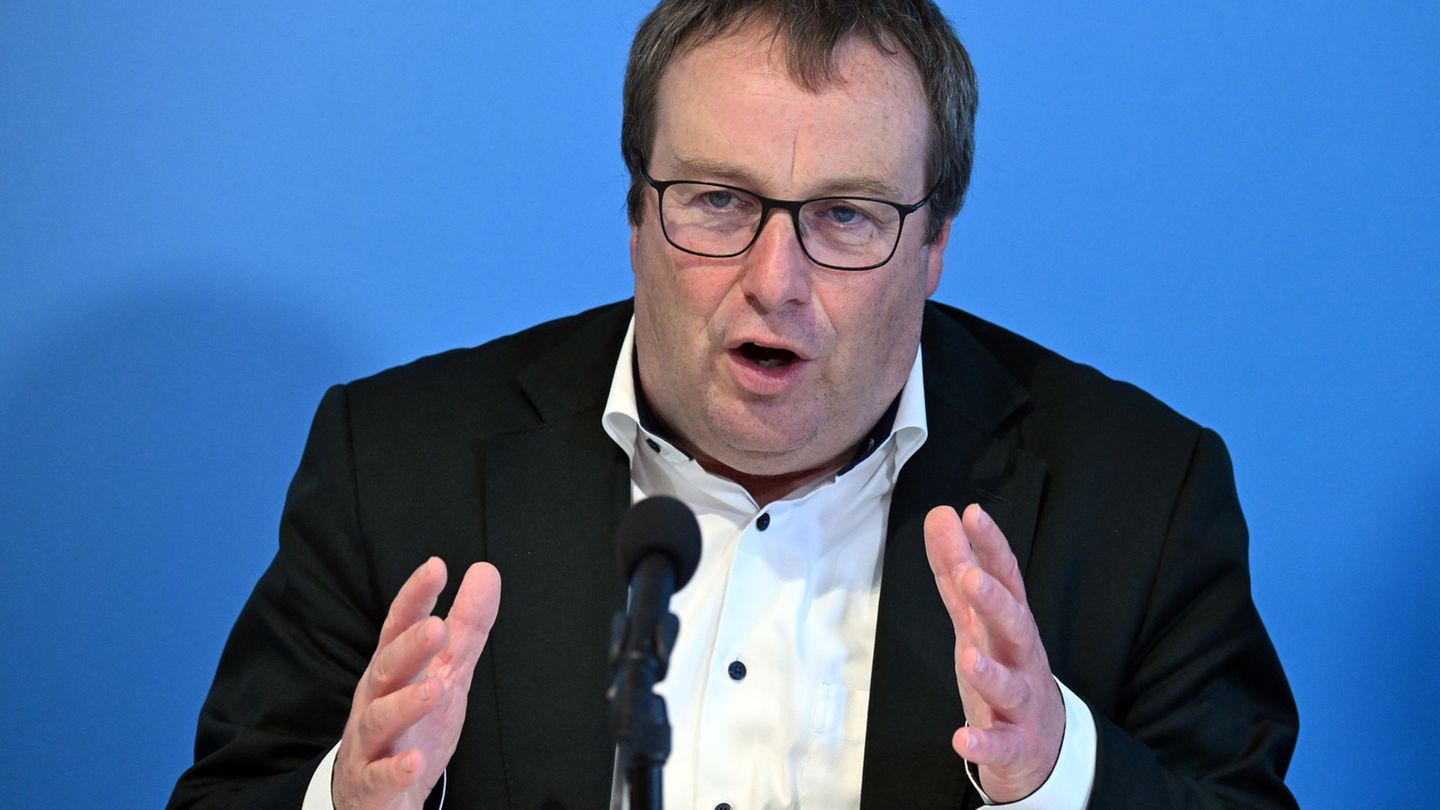Chancellor Diana Mondino signed the Decree of Necessity and Urgency of economic deregulation like the rest of the ministers. The rule impacts several sectors of the economy, including the financial sector. Ámbito was able to corroborate that according to the information published by the Central Bank of the Argentine Republic, the head of the Ministry of Foreign Affairs is the majority shareholder of the Roela bank along with her brother Guillermo Mondino. A report from a risk rating agency published on December 15 of this year confirms that the shareholding composition was not modified. The Civil Association for Equality and Justice (ACIJ) considers that the official “should have excused herself” and Poder Ciudadano pointed out that the Anti-Corruption Office has to study the case.
President Javier Milei announced on national television the signing of a DNU that, upon its entry into force, will repeal or modify a total of about 300 regulations. Among them, several laws passed unanimously in the National Congress. The measure centrally aims to deregulate a series of economic activities, such as energy, mining, industry, commerce, real estate and finance.
Regarding this last point, the decree eliminates the rate cap charged to businesses, removes the ceiling on punitive interest for delays in credit card payments and repeals sanctions for companies that do not report the interest rate. At the same time, it omits free opening of salary accounts and money withdrawals for the employee (they were expressly included until now) and opens the door to the privatization of the Banco de la Nación Argentina.
According to the BCRA website, at the time of signing the DNU, Mondino was still the majority shareholder of Roela Bank with 49.61% of the capital. That same percentage is held by her brother, the economist Guillermo Mondino, and the remaining 0.78% is in the hands of grouped shareholders.
Sources from the monetary authority confirmed to Ámbito that at the time of going to press there had been no change in the shareholding composition. Likewise, a report dated December 15 of this year from the risk rating agency Evaluadora Latinoamericana reflects that the majority of the company’s capital continues in the hands of the Mondino brothers in equal parts.
When asked by this medium, Ezequiel Nino, a specialist in transparency issues and co-founder of ACIJ, stated that “in accordance with the current rules on conflicts of interest, the chancellor should have excused herself from signing the sections of the DNU linked to banking activity. in which he has a patrimonial interest.”
The impact that the decree will have on the sector is debatable. “The subsequent effects are always counterfactual, but that is not the point, the point is that she is legislating on an issue in which she is an interested party,” a judicial source with experience in the matter told Ámbito.
On the one hand, the elimination of the cap on punitive interests and the eventual privatization of Banco Nación could favor private financial entities, but it is no less true that deregulation could also imply greater competition with fintech companies, since it opens the game to so that employers can deposit salaries there. In any case, the fact that Mondino signs a decree with consequences for the regulation of the banking sector while she is herself the majority shareholder of a bank raises questions.
From the foundation specialized in transparency Poder Ciudadano, they pointed out that “it is a situation that requires attention” and added that “the Anti-Corruption Office should study the issue in depth and analyze whether it constitutes a case of conflict of interest.” The non-governmental organization published a statement last Friday that warns about the damage of the DNU in the division of powers.
Although the Foreign Ministry has no direct influence on most of the points of the decree, Mondino had to sign it because article 99 of the Constitution determines that the DNU “will be decided by a general agreement of ministers and must be endorsed together with the “Chief of the Cabinet of Ministers.”
The minister’s entourage rejected the idea of a potential conflict of interest. Although they did not specifically refer to the DNU, they assured that until now the banks are among the losers of the Milei model due to the elimination of the Leliq and the lowering of rates that resulted in the entities receiving a lower interest rate during the last Treasury placement. that pay savers for fixed terms.
The origin of Roela
Roela was acquired by Víctor Mondino in 1961 when it was a financial company formed by a group of medical professionals and a clinic. In 1978, he obtained permission to consolidate it as a banking entity. According to its website, the firm has been working “for more than 60 years to find appropriate solutions to the reality of each person, company, business” and is characterized by a “prudential” policy.
Diana Mondino was president of the bank and also held various positions within the leadership. In the last change of authorities, the minister was removed from the board. However, she retained the majority shareholding and her husband, the former Secretary of Economic Policy Eugenio Pendás, remained as alternate director.
The term “conflict of interest” once again took center stage between 2015 and 2019, when managers of relevant companies in different sectors of the economy held hierarchical positions within the State and made decisions that were judicially questioned. The law that regulates these cases is “public ethics”, 25,188. Among other things, it says that officials must not “receive any undue personal benefit linked to the performance, delay or omission of an act inherent to their functions, nor impose special conditions that result in it.”
Source: Ambito




